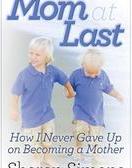By Jody Nelson
Have you been feeling alone since your pregnancy loss? That’s a sensation many women describe having had after a miscarriage or stillbirth. It’s something you may feel your partner can’t relate to, and you know what? You’re probably right. Your partner probably can’t relate to this feeling. Dealing with this loneliness can be one of the more difficult, isolating challenges of pregnancy loss. Before you were pregnant, it was just you and your partner. Then you got pregnant and it changed. The baby was suddenly sharing space with you. As a friend of mine puts it “there’s no dividing line. The woman and the baby are one.” And that is something I find men have a really hard time understanding.

No dividing line. How do you wrap your brain around that? When you got pregnant you were constantly aware of that new life budding within you. You found your hand resting gently on your tummy. You found yourself talking softly to the baby, whispering dreams of hope, humming happy tunes. You may have felt yourself simply sharing your very thoughts with the baby, unspoken, un-whispered. That level of intimacy just isn’t possible in any other type of relationship. You and the baby were one.
And then the trauma came. And that intimacy just wasn’t there anymore. That feeling of constantly sharing your body, your thoughts, your everything; it was just gone. Simply gone. How do you deal with that loss? How do you deal with the inevitable loneliness that follows? There isn’t any simple surefire cure. I’m sorry. There just isn’t. Anyone who promises you otherwise, is a fraud. It takes time. It’s painful. And it can be lonely. But there are some things you can do to help ensure a swifter, healthier recovery.
1. Don’t isolate too much. The first thing I’d suggest is to resist the urge to completely isolate yourself. It’s a normal feeling to need time and privacy, and only you can really tell how much time you need to be alone. Solitude can be healing. But there comes a point where that solitude can prevent healing as well. Too much time alone tends to bring about brooding. You have friends and family who want to be there for you, but they probably want to give you your time and space. They have no way of really knowing when you’re ready. You’ll have to let them know.
2. Decide who you want to talk to. Before you start to emerge back into the world, figure out who you are going to want to talk to about your experience. Who do you trust with this? Your closest friends? Family? Co-workers? You may not feel like telling anybody, and that’s your choice. We were not meant to suffer through life’s sorrows alone, though. Keeping this entirely to yourself will most likely be more damaging to yourself in the long-run.
3. Realize that not everyone will be helpful. Once you’ve started moving out and about in the world again, you’ll probably find that people feel a bit awkward, as if they don’t know what to say. Well, quite frankly, unless they’ve been through what you’ve been through, they won’t know what to say. They just can’t. And sometimes even if they have been through it, they won’t have the right words. What was helpful to them may not be helpful to you.
One thing to keep in mind is that sometimes people make seemingly well-intentioned statements such as “It was for the best,” or “It was part of God’s plan.” These statements, meant to be comforting, can make a person want to go on a rampage. Realize in advance that you are going to hear this from someone. And it’s going to hurt, but also know that they are trying to help. It might be wise to limit their opportunities to “help” in the future.
4. Know what kind of support you want. After you’ve figured out who you want to talk to about the pregnancy loss, think about what you want from them. You probably just want someone to listen to you, to hear you, and maybe to hold you. It may be helpful to let them know up front what would be helpful to you. Letting them know that just letting you vent to them, just having them listen, just having somebody to BE with is helpful to you is what you need. Let them know you don’t need answers or solutions from them. You may want answers, but nobody can give them to you. There aren’t any. We know this. So let them know that you know that. It takes the pressure off of everyone, and makes sharing, and listening, easier.
5. Get out of the house. If you just don’t feel like talking with others, that’s okay. But try not to hole up in your home. Get out of the house. Go for a walk. Take a break at a coffee shop. Go shopping. Just do something away from home. Sometimes you can feel better just being around other people, even if you aren’t directly interacting with them. Sometimes, to be honest, it may not help much. But it will help stimulate your senses, and that can be helpful in breaking out of the rut of depressive thoughts which usually accompanies pregnancy loss.
About the Author
Jody Nelson is a family therapist who blogs about recovery from miscarriage and pregnancy loss at [http://www.miscarriagerecovery.com]
Article Source: http://EzineArticles.com/4572866
Image courtesy of [dan] / FreeDigitalPhotos.net

